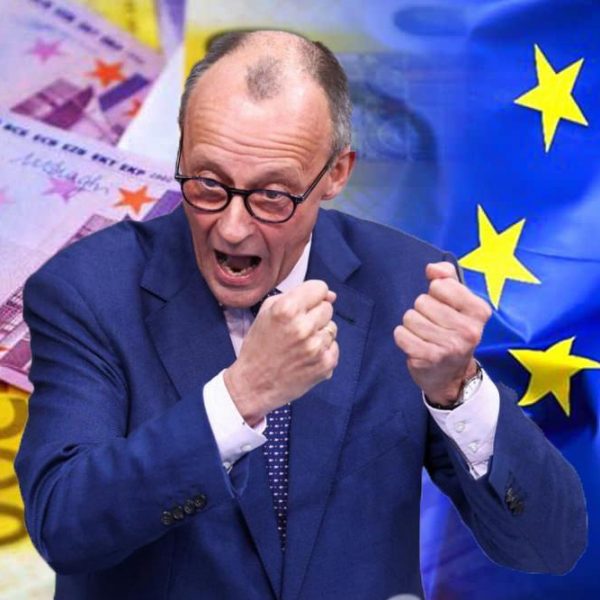
Martin Jay
Sanctions against Russia from the West have so spectacularly failed that we can only assume that Russia was preparing for them and has become stronger despite of them.
Does anyone believe that Trump's international economic strategy has any merit whatsoever? Can we really assume that he knows what he's doing when he imposes sanctions on countries that he feels are harming national interests, only when we see that they backfire on American workers?
Secondary sanctions are almost impossible to implement. You would have thought that Trump would have learnt that when, in his first term, he imposed them on Turkey, China, South Korea and India against buying Iranian oil. At first, they seemed to work. But it didn't take long for China to create 'go arounds' and to work out a fix whereby they could still buy cheap oil from Tehran and make it look as though they weren't. And then the rest followed.
And now it would seem that Trump still doesn't get it. Yet it's not just Trump, but also the European Union and its member states. Any economics student will tell you that the German economy is falling apart at quite an alarming rate or that the UK will need a massive IMF bailout within a year, following those economies' demise linked to funding the Ukraine war and also no longer buying cheap Russian oil. Did sanctions against Russia help any western country? Of course not.
Just recently the U.S. imposed sanctions on Russian oil giants Rosneft and Lukoil and their subsidiaries while the EU more or less at the same time officially implemented its 19th package of sanctions against Moscow, targeting over 117 vessels from what Brussels claims is a Russian "shadow fleet," of vessels registered in different countries but supposedly owned by Russian individuals or companies.
And then suddenly Trump decided that India would be the example to punish to show the world that you can't be non-aligned and get the best from both worlds.
Earlier this year, Trump imposed a 25% tariff on India, pointing out its purchases of Russian oil as the reason. The tariff was actually a double whammy as it was added to an existing 25% levy imposed as a part of 'Liberation Day'. The U.S. president accused India and China of contributing to the Ukraine conflict by buying Russian crude.
Countries which also bought crude oil from Russia like Morocco might have been concerned for a while that maybe the India stunt might be heading their way and yet Rabat needn't have fretted. Yet in a world which is now multipolar, such U.S. style petulant sanctions don't seem to work. These days there is a global momentum for many countries to move away from U.S. dollar dependency with BRICS emerging as a new trade bloc and such sanctions as the ones placed on India run a very real risk of simply driving the Indians into the arms of other bigger customers who can arm them with better, cheaper weaponry while with the case of China, it merely pushes Beijing towards a geo-military strategy in the East against the U.S. and its allies. It's as though Trump's experts told him that India was a soft option and low-hanging fruit and that its leaders would quickly fall into line.
What a colossal error of judgment sanctions have been both for the U.S. and for EU governments who are now looking at desperate new fiscal measures just to keep their public infrastructure intact and running.
Sanctions against Russia from the West have so spectacularly failed that we can only assume that Russia was preparing for them and has become stronger despite of them. Sanctions evidently cannot stop the war in Ukraine. Only a detachment from the wild delusional views still held by many western leaders that Russia's economy is on its knees and it can't sustain its strategy on the battlefield in eastern Ukraine can do this. For the EU to look at stealing Russian seized assets is not a strategy. It's a failure of governance on so many levels but it's easy to see why Zelensky is still in the game as for him the money which comes from the west provides the minimal amount of war fodder to keep the whole circus alive, while he retains martial law in the country keeping him president, well beyond his legal mandate. What will these leaders say when Pokrovsk, a city in eastern Ukraine which is surrounded by Russian forces, falls? While Zelensky sends his own special forces there to buy time, Russia allows foreign journalists to go there and embed with its army, so confident Putin is that the time is nigh for this one key city to fall like a domino and bring down the whole Ukrainian army with it.